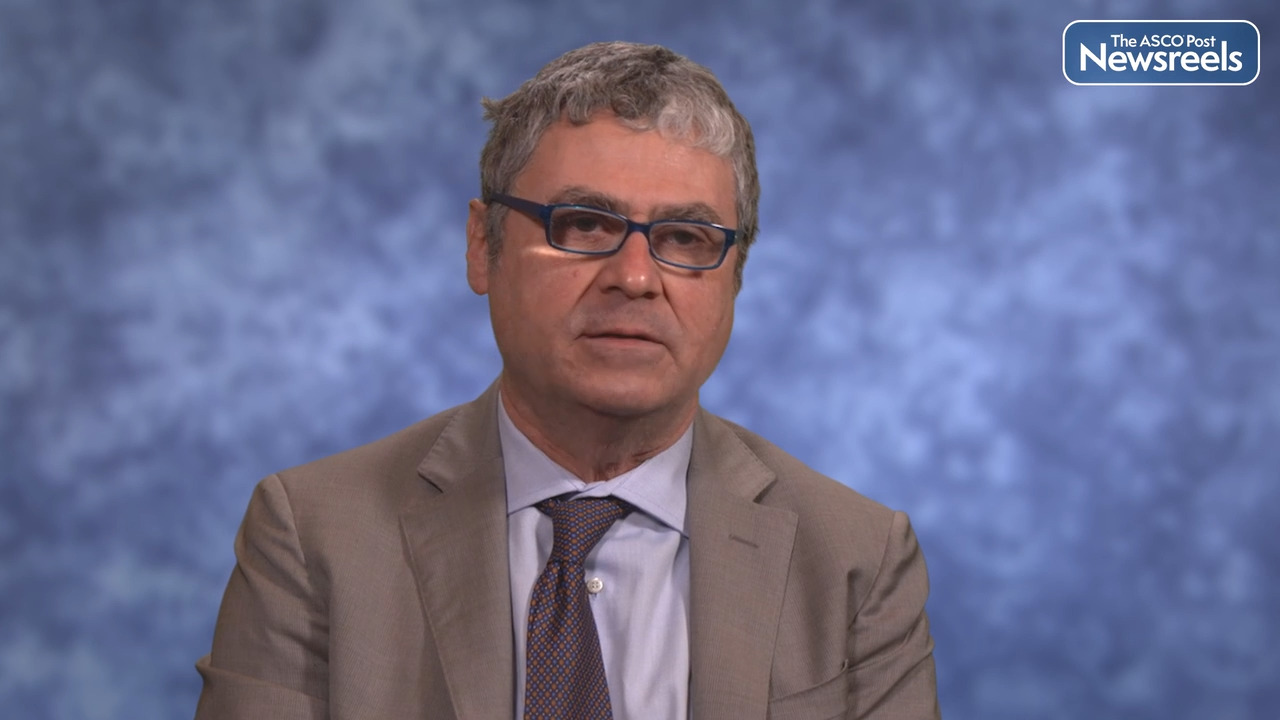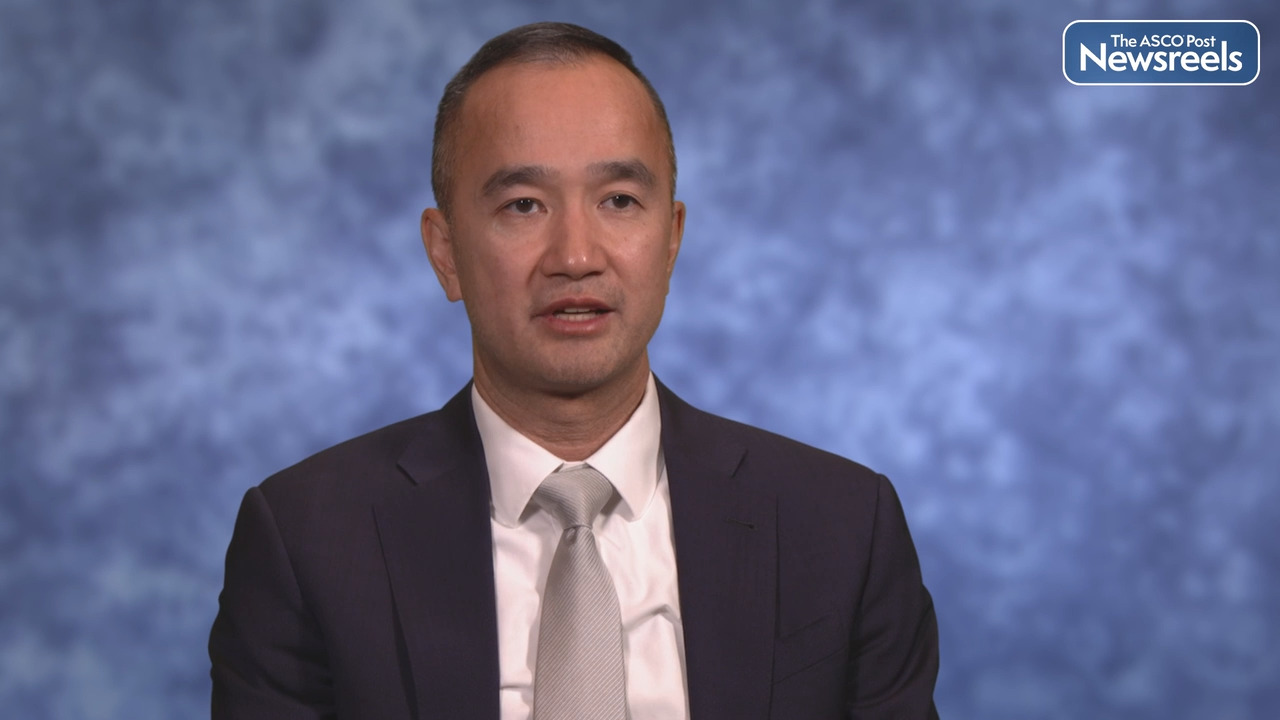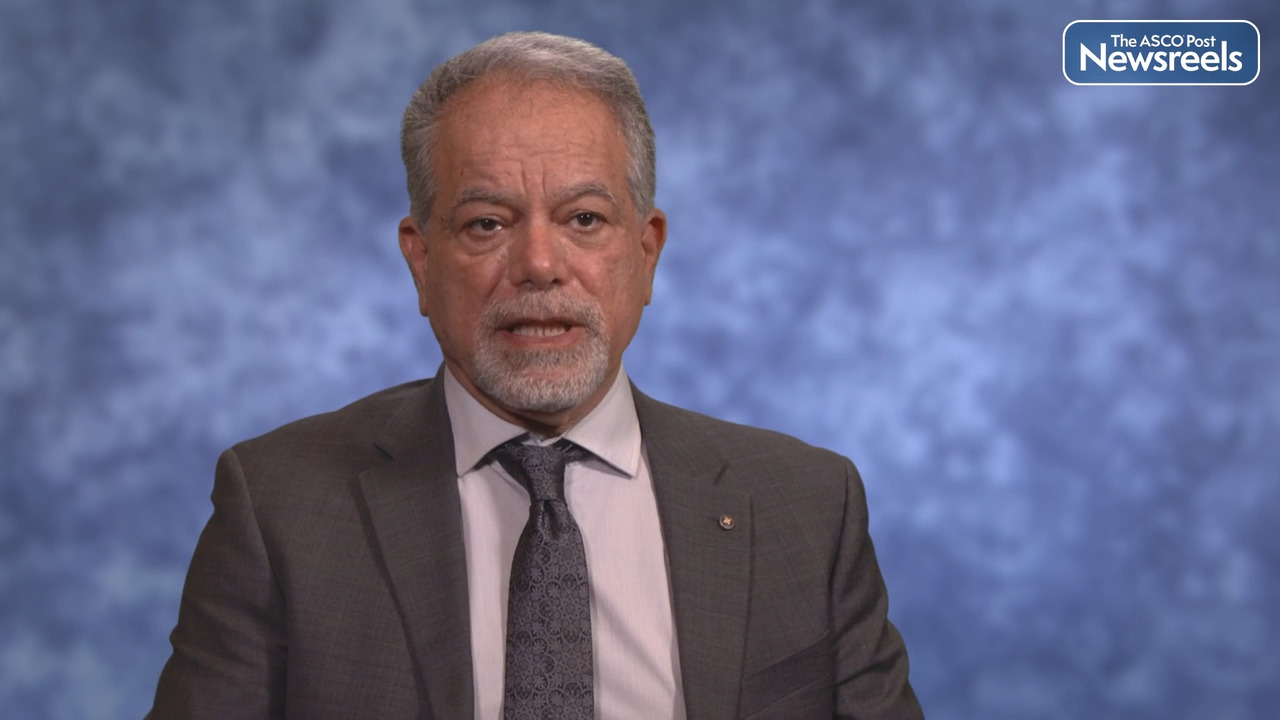Xin Gao, MD, on Prostate Cancer: Early-Phase Results on Bavdegalutamide
2022 ASCO Genitourinary Cancers Symposium
Xin Gao, MD, of Massachusetts General Hospital, discusses phase I/II findings on bavdegalutamide, an androgen receptor protein degrader, which showed clinical activity in heavily pretreated patients with metastatic castration-resistant prostate cancer who received one to two prior novel hormonal agents.
The ASCO Post Staff
Hielke-Martijn de Vries, MD, of the Netherlands Cancer Institute, discusses phase II findings on the use of atezolizumab with or without radiotherapy for patients with advanced squamous cell carcinoma of the penis. The study was designed to address the poor prognosis for this disease by exploring whether a protracted schedule of radiotherapy for locoregional disease, in combination with immunotherapy, could improve outcomes (Abstract 3).
The ASCO Post Staff
Alfredo Berruti, MD, of Italy’s University of Brescia, discusses the first study to give adjuvant mitotane to patients with adrenocortical carcinoma, a rare disease with a high risk of relapse after radical surgery. Although theoretically this treatment may be clinically worthwhile, the findings suggest that the need for adjuvant mitotane should always be discussed on a case-by-case basis by the multidisciplinary team, and more study is warranted (Abstract 1).
The ASCO Post Staff
Kim Nguyen Chi, MD, of the University of British Columbia, BC Cancer-Vancouver Center, discusses first phase III results from the MAGNITUDE study, which explored the use of the PARP inhibitor niraparib with abiraterone acetate and prednisone as first-line therapy in patients with metastatic castration-resistant prostate cancer with and without homologous recombination repair gene alterations (Abstract 12).
The ASCO Post Staff
Toni K. Choueiri, MD, of Dana-Farber Cancer Institute, discusses a 30-month follow-up of results from the KEYNOTE-564 trial, which further support the use of adjuvant pembrolizumab when treating patients with renal cell carcinoma at intermediate-high or high risk of recurrence, or with an M1 NED (no evidence of disease) status after nephrectomy. The data show a disease-free survival benefit vs placebo (Abstract 290).
The ASCO Post Staff
Fred Saad, MD, of the University of Montreal Health Centre, discusses phase III findings demonstrating for the first time the clinical benefits of olaparib plus abiraterone in patients with metastatic castration-resistant prostate cancer, irrespective of their homologous recombination repair mutation status. This regimen led to significantly longer radiographic progression-free survival than placebo plus abiraterone (Abstract 11).





